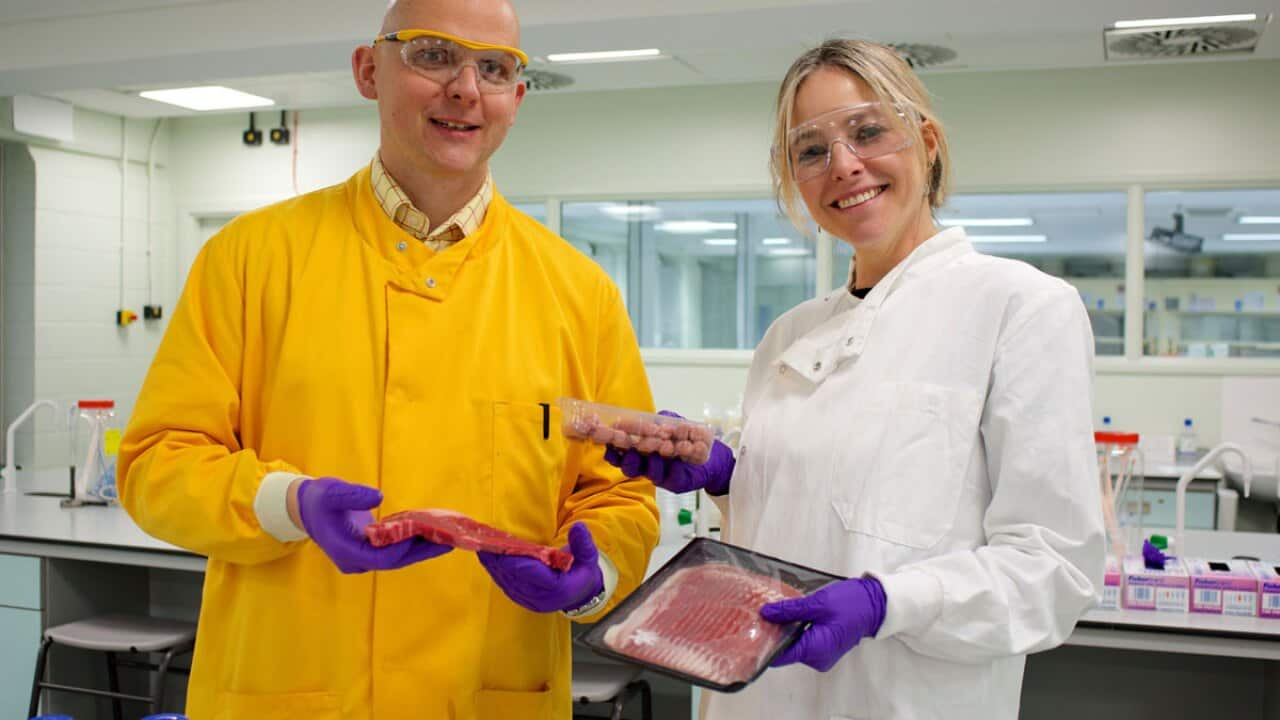Dr Pixie McKenna cares about your well-being. You probably know this from catching the charming medical professional in the BAFTA-award winning Embarrassing Bodies, where she and Dr Christian Jessen shed light on rarely discussed or largely misunderstood health concerns just to make us feel better.
In Staying Healthy: A Doctor’s Guide, McKenna strives to do the same. She crunches dry, UK-specific NHS (National Health Service) data from 2016 into a string of universal facts, tips and revelations.
Here’s what you’ll learn from McKenna’s often enlightening and always entertaining special.
What’s the truth about alcohol-free months?

McKenna receives a liver test before her dry month group experiment. Source: SBS
Dr Pixie’s dust: McKenna gets to the bottom of whether these dry months have any significant impact on an individual’s general health, as well as the nation’s overall alcohol consumption. How does she do this? She enlists a diverse group of drinkers, and conducts a series of tests both prior to and after the sober period. Whether or not you’re into the booze ( of Australian adults drink, so odds say you are), her results might surprise you.
How easy it to end up with bad bacteria all over you?

A subject from McKenna’s grand bacteria experiment. Source: SBS
Dr Pixie’s dust: Considering one in 10 Brits don’t wash their hands after visiting the loo, one in four don’t do the same before meals and half of the population don’t wash after sneezing, it’s surprising the UK isn’t sinking in an ocean of mutual mucus. In order to prove just how easy it is to contract the flu, McKenna shoots mock bacteria throughout a primary school classroom, sends a group of little ones into the room, then uses UV light to reveal her findings. Hilarious (and gross) stuff.
Can we ever enjoy sweet stuff, guilt-free?

A glass of cola, replete with 10 teaspoons of sugar. Source: SBS
Dr Pixie’s dust: We all know soft drinks are royally disruptive to one’s wellbeing and one of the main culprits of obesity epidemics. But what about other sweet treats? Here, McKenna dives mouth-first into the sticky world of cakes and biscuits, and answers the question we’ve always wanted to know: can any of our favourite desserts ever actually benefit our health?
What’s the skinny on high cholesterol?

McKenna presents the subjects of her cholesterol experiment. Source: SBS
Dr Pixie’s dust: While McKenna agrees high cholesterol is a massive problem among Western populations (she’s seen this first-hand thanks to her general practice), she also worries about misconceptions about cholesterol held by the general public. She puts her worries to work by presenting a disparate group of body types to the general public and testing their assumptions, then setting up a pop-up cholesterol testing stand for passers-by.
What is daylight saving doing to us?

Sure, daylight saving is annoying. But is it also dangerous? Source: SBS
Dr Pixie’s dust: While energy saving is almost always a good thing, McKenna wants to know if we humans suffer any adverse side effects from losing or gaining an hour. In order to get to the bottom of this accepted practice, she turns to one of the world’s most preeminent authorities on the science of sleep, Professor Russell Foster. What he has to reveal about the downside of daylight saving is more frightening than you’d expect.
Staying Healthy: A Doctor’s Guide is now streaming at SBS On Demand:


